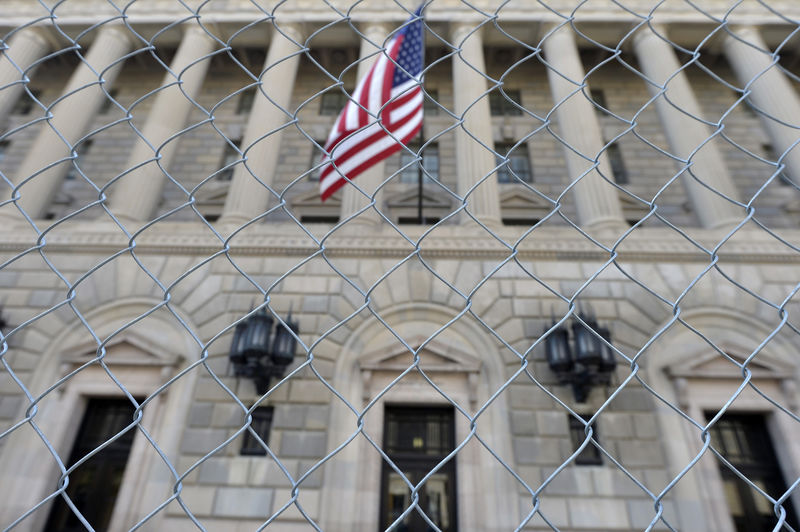This post was originally published on this site
https://i-invdn-com.akamaized.net/trkd-images/LYNXMPEF9S1R8_L.jpg © Reuters. A fence surrounds the U.S. Department of Commerce in Washington
© Reuters. A fence surrounds the U.S. Department of Commerce in WashingtonBy Alexandra Alper
WASHINGTON (Reuters) – Rules to implement a White House executive order that is expected to pave the way for China’s Huawei to be banned from the U.S. telecoms supply chain are “under consideration and review,” a Commerce Department official said on Tuesday.
The rules, which were due earlier this month, would implement an earlier declaration of a national emergency in the telecoms supply chain, and are likely to be used by Washington to tighten the squeeze on the telecoms equipment giant.
Speaking at an event in Washington, the official, Eileen Albanese, said the rules were “under consideration and review,” without offering a time line. They are “not yet ready for prime time,” she added.
The White House in May mandated that Commerce write the rules, which will likely spell out new requirements for companies to participate in the telecoms supply chain. That same day, the department placed Huawei Technologies Co Ltd, the world’s No. 1 telecoms equipment supplier, on the so-called entity list, citing national security concerns. U.S. companies are banned from selling to Huawei without a special license.
Although top officials have encouraged U.S. companies to apply for licenses, promising to permit sales of products to Huawei that are readily replaceable and do not compromise U.S. national security, the Commerce Department has yet to issue responses to more than 200 license requests it has received.
Albanese said the license requests were still in process and declined to give a time line on issuing them.
Many China-watchers see Huawei as a pawn in the trade war between the United States and China as President Donald Trump’s administration uses the sanctions against one of China’s most successful multinationals to wring concessions out of Beijing.
SLEDGEHAMMER
Concerns about China stealing U.S. technology prompted Congress to pass legislation last year requiring the Commerce Department to write new rules to toughen standards for the export of emerging and foundational technologies to rivals.
Late last year, the Commerce Department sought public comment on how to design rules for exports of emerging technologies, but has yet to issue proposals. It has not yet sought public comment on how to draft measures regulating exports of foundational technologies, those seen as key in making critical technologies such as chips.
Albanese also said Commerce would propose emerging technology rules “shortly” and that the agency hoped to seek comment before proposing a rule for foundational technology before the end of the year.
But she cautioned against being “shortsighted” and writing rules that are so tough that they cut off the revenue flows from foreign customers that allow U.S. firms to stay at the forefront of technology.
“We need to take a very balanced approach, use all the tools in our tool box but not to the point where it’s a sledgehammer,” she said, arguing such an approach could drive U.S. companies offshore.
Fusion Media or anyone involved with Fusion Media will not accept any liability for loss or damage as a result of reliance on the information including data, quotes, charts and buy/sell signals contained within this website. Please be fully informed regarding the risks and costs associated with trading the financial markets, it is one of the riskiest investment forms possible.

